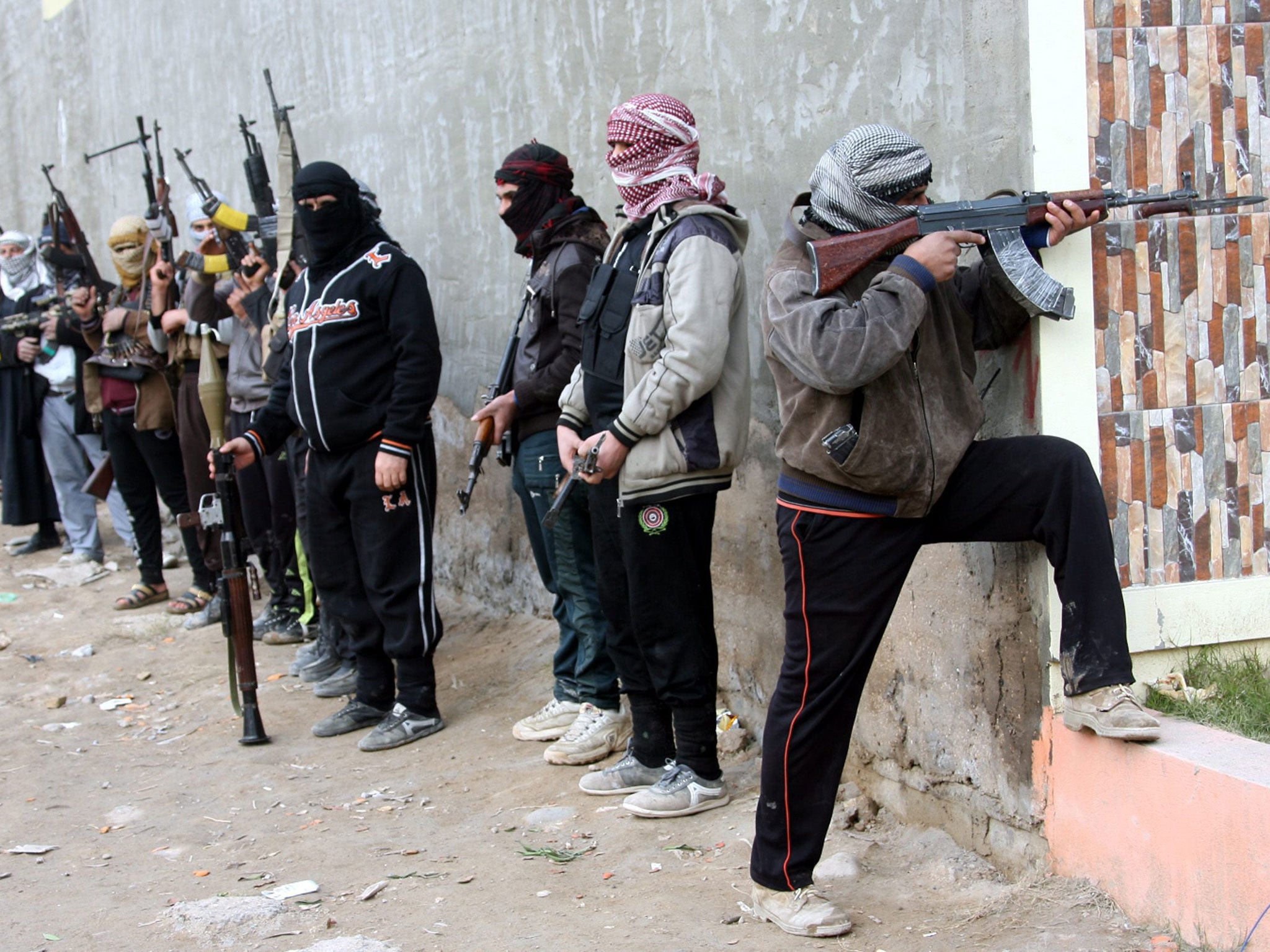The harm before the storm: Army battles to expel resurgent al-Qa’ida from Iraq
As the wars in Iraq and Syria increasingly become one, Iraqi Prime Minister Nour al-Maliki must restore order before sectarianism worsens

Your support helps us to tell the story
From reproductive rights to climate change to Big Tech, The Independent is on the ground when the story is developing. Whether it's investigating the financials of Elon Musk's pro-Trump PAC or producing our latest documentary, 'The A Word', which shines a light on the American women fighting for reproductive rights, we know how important it is to parse out the facts from the messaging.
At such a critical moment in US history, we need reporters on the ground. Your donation allows us to keep sending journalists to speak to both sides of the story.
The Independent is trusted by Americans across the entire political spectrum. And unlike many other quality news outlets, we choose not to lock Americans out of our reporting and analysis with paywalls. We believe quality journalism should be available to everyone, paid for by those who can afford it.
Your support makes all the difference.The Iraqi army is planning to storm the city of Fallujah 40 miles west of Baghdad that has been taken over by fighters from al-Qa'ida in Iraq, which is part of the umbrella organisation, the Islamic State of Iraq and al-Sham (ISIS). They have torn down Iraqi national flags and raised the black al-Qa'ida flag over captured police stations, set fire to military vehicles on the road to Baghdad and captured 75 government soldiers.
The Iraqi government's control in overwhelmingly Sunni Anbar province, which covers much of western Iraq, is in the balance.
Al-Qa'ida in Iraq, which was seen as largely defeated three years ago, has staged a dramatic resurgence thanks to Isis, seizing significant parts of northern and eastern Syria. Some of the fighters now holding central Fallujah are reported to be Syrians who have come across the 373-mile long border. The wars in Syria and Iraq are increasingly turning into a single conflict.
The decline in the Iraqi government's position began in December as Prime Minister Nouri al-Maliki stepped up the pressure on Sunni protesters in Anbar who have been demonstrating for a year against persecution. The government is under pressure from its supporters to stem a wave of devastating bombing attacks by a rejuvenated Isis in 2013 that killed 8,000 civilians and 1,000 police and army. A further 15 people were killed in Baghdad on Sunday.
Mr Maliki was eager to show political and military strength by a more assertive policy in Anbar and other Sunni-majority provinces in the lead up to the parliamentary elections in April, when he hopes to win a third term. Little has gone well for Mr Maliki in the last two weeks, however. On 21 December, an Isis ambush in Anbar killed 24 Iraqi army officers and tension increased a week later when the government arrested a powerful Sunni MP, Ahmed al-Alwani, whose brother was killed by security forces.
On 30 December, the long-standing encampment of Sunni protesters in Ramadi was closed but the following day Mr Maliki reversed course in the face of an outcry from Sunni leaders and withdrew the army from the cities of Anbar, notably Ramadi and Fallujah. These were occupied by Isis fighters, though they have not been able to hold Ramadi in the face of counter-attack by government-allied tribal militiamen.
A problem for the government is that Mr Maliki is engaged in a three-cornered struggle in which he faces, as well as Isis, Sunni tribal leaders who were part of the Sahwa (Awakening) movement which turned on al-Qa’ida with support from the US army in 2006. These Sunni notables have supported the protest movement, but Mr Maliki has made few concessions to the Sunnis, whom many Shias see as ultimately aiming to over-turn the post-Saddam Hussein political settlement that gave power for the first time to Iraq's Shia majority allied to the Kurds.
The government's intransigence has led a peaceful protest movement to mutate into armed resistance led by al-Qa'ida in Iraq. The latter, badly battered in 2010, has enjoyed a swift resurgence launching devastating bombings mostly targeting Shia civilians. The response to the Sunni protests and the return of al-Qa'ida has been a self-defeating mix of harshness and conciliation.
Mr Maliki promised reforms but in April his forces stormed a protest camp in Hawija, south-west of Kirkuk, killing 53 people. Sunni people in and around Kirkuk, who had previously looked to Mr Maliki as an ally against the Kurds, demanded that Iraqi army units be withdrawn from their areas. Politically, the rise of Isis, with its hatred of the Shia as heretics deserving death, is not against Mr Maliki’s interests since it solidifies the Shia vote behind him. The threat of al-Qa'ida also brings more US support in the shape of helicopters, Hellfire missiles and intelligence.
The Iraqi government may be deeply unpopular in Sunni areas but this does not mean that al-Qa'ida is liked. When it was last at the peak of its power in 2006, its violence and bigotry made it even more unpopular among Sunni than the Americans. Sheikh Abdul Malik al-Saadi, an influential Sunni cleric in Iraq previously known for counselling moderation, now says that Mr Maliki has "brought Iraq nothing but war, poverty and sectarianism. Oh people of Anbar, especially the sheikhs of Anbar, defend yourselves and your people!"
Video: Fighting in Fallujah
Join our commenting forum
Join thought-provoking conversations, follow other Independent readers and see their replies
Comments